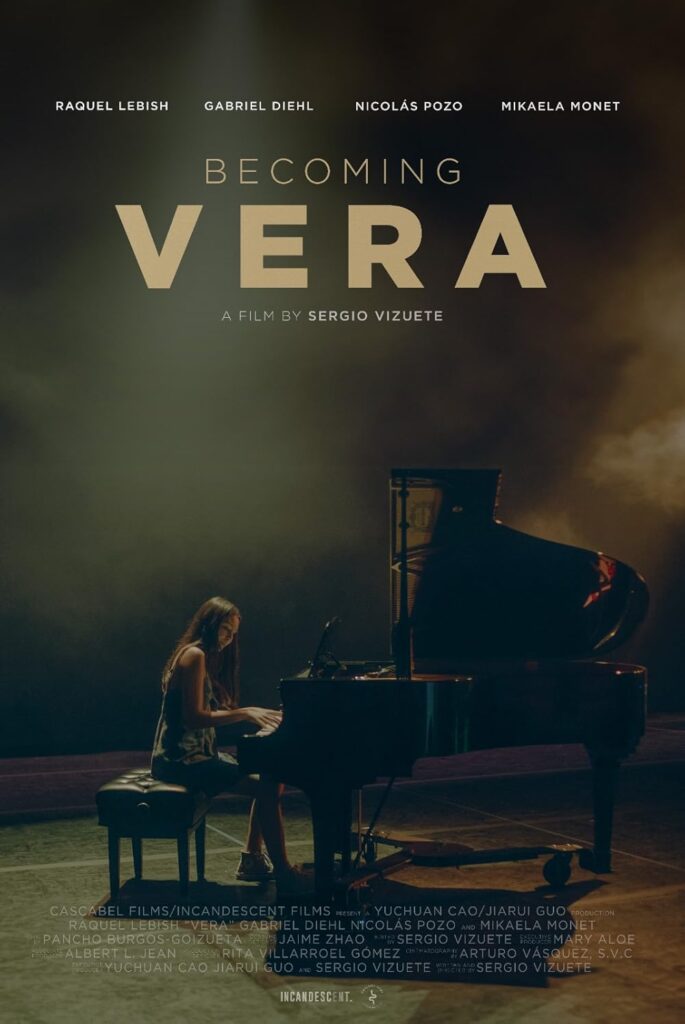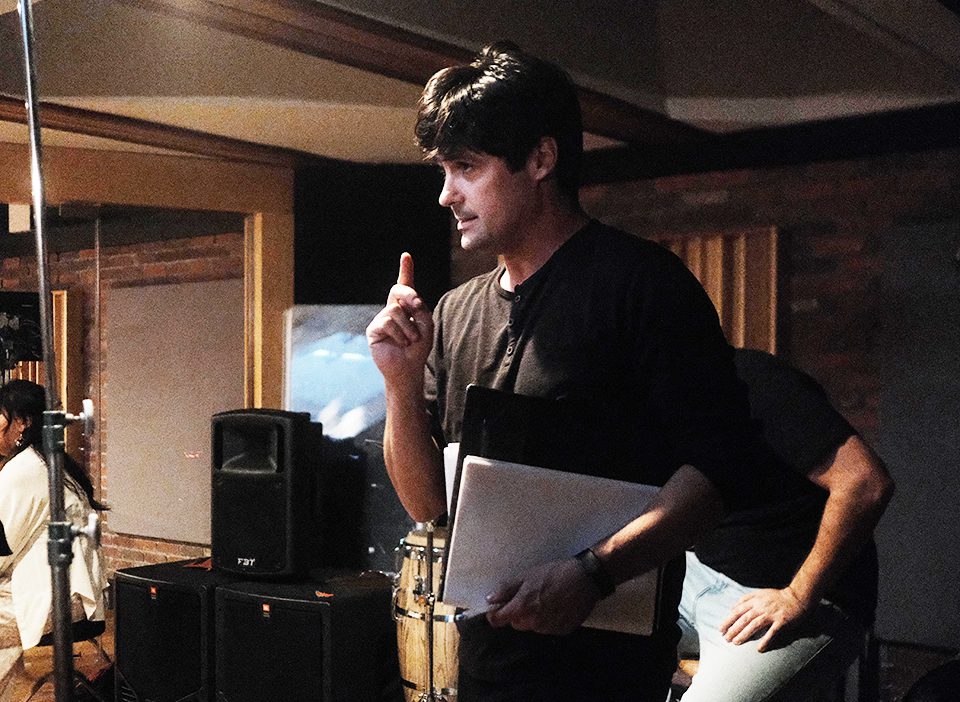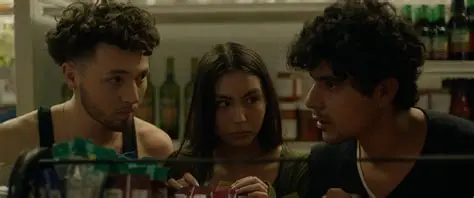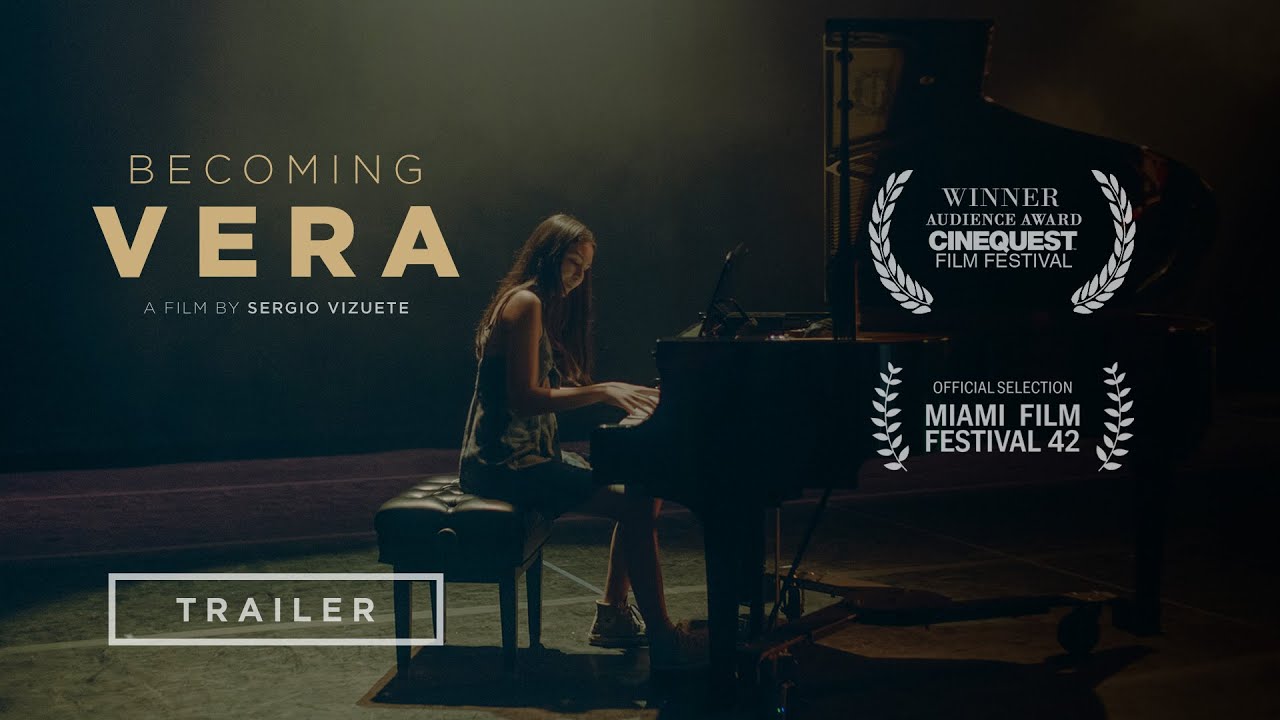In the pantheon of cinematic debuts that capture the essence of human resilience through the lens of artistic struggle, Sergio Vizuete’s Becoming Vera emerges as a masterpiece of emotional authenticity and narrative finesse. This feature film, set to premiere in Los Angeles on October 11 at 8:30 PM at the Cinépolis Luxury Cinemas in Hollywood Park as part of the inaugural Film Festival at Hollywood Park, is not merely a story—it’s a symphony of self-discovery, woven with the rhythmic threads of Latin jazz and the stark realities of foster care survival. For cinephiles who crave films that transcend spectacle to delve into the soul’s quiet battles, Becoming Vera is a revelation, a work that echoes the introspective depth of arthouse classics while forging its own path in contemporary independent cinema. Its arrival in LA marks a triumphant moment for Vizuete, a director whose transition from award-winning commercials to narrative features demonstrates a profound understanding of visual storytelling’s power to illuminate social truths.
At the heart of Becoming Vera lies its protagonist, Vera, an 18-year-old piano prodigy portrayed with breathtaking nuance by Raquel Lebish. Freshly aged out of the foster system—a transition that leaves countless young adults adrift without support—Vera navigates the vibrant yet unforgiving streets of Miami. Her life is a tapestry of odd jobs and fleeting stability, but her true anchor is the piano, where she channels her turmoil into Latin jazz compositions that pulse with raw emotion. Vizuete masterfully constructs Vera’s world as one of contrasts: the humid, neon-lit nights of Miami’s music scene against the isolation of her personal struggles. When Vera secures a gig painting walls at a high-end recording studio owned by the slick producer Hector (Gabriel Diehl), opportunity knocks. Sneaking moments to play the studio’s grand piano, she crafts a freestyle piece that blends Latin rhythms with her inner chaos—a moment of pure creation that Hector overhears. What follows is a harrowing yet empowering arc: Hector appropriates her work, crediting it to another artist, Ellen (Mikaela Monet), forcing Vera to confront exploitation head-on and reclaim her voice, her art, and her identity.
Vizuete’s screenplay is a triumph of character-driven drama, eschewing melodrama for subtle, layered explorations of themes like creativity, exploitation, and resilience. Drawing from his own experiences as a foster parent and an immigrant from Spain who relocated to the U.S. 25 years ago, Vizuete infuses the film with personal authenticity. In interviews, he has described how fostering exposed him to the emotional rollercoaster of youth in crisis, mirroring Vera’s journey. “It’s about that drive to be heard,” Vizuete notes, and indeed, the film becomes a manifesto for marginalized artists. The Latin jazz soundtrack isn’t mere accompaniment; it’s Vera’s lifeline, with compositions that evolve from tentative melodies to bold assertions of self. Cinematographer Arturo Vasquez captures this with a naturalistic style—handheld shots in dimly lit studios, close-ups on Lebish’s fingers dancing across keys—that immerses viewers in Vera’s sensory world. The film’s 87-minute runtime feels expansive, allowing moments of quiet reflection to breathe amid the tension.

Lebish’s performance as Vera is nothing short of extraordinary, a star-making turn that conveys volumes through silence and subtlety. Her eyes reflect the weight of abandonment, yet spark with defiance when she fights back. It’s a role that demands vulnerability, and Lebish delivers, making Vera’s growth from a withdrawn survivor to an empowered creator feel organic and inspiring. Gabriel Diehl as Hector avoids caricature, portraying him as a product of the industry’s ruthless machinery rather than a one-dimensional villain—his charm masking predatory instincts adds chilling realism. The supporting ensemble elevates the film further: Nicolás Pozo as Jake, Vera’s tentative ally and romantic interest, brings warmth and humor; Mikaela Monet’s Ellen embodies the cutthroat competition with poignant insecurity; Phillip André Botello as Ariel and Brandon Williams as Daniel round out a group of characters who represent the web of relationships that both hinder and help Vera’s path. Their interactions feel lived-in, with dialogues that ring true to Miami’s multicultural fabric, blending English and Spanish seamlessly.
What makes Becoming Vera truly great is its thematic richness, exploring not just individual struggle but broader societal issues. The foster care system is depicted with unflinching honesty—Vera’s aging out highlights the statistic that 23,000 youths face this annually, often leading to homelessness or exploitation. Vizuete uses this as a backdrop to examine how creativity becomes a tool for survival, a theme resonant in films like Moonlight or The Piano, but uniquely flavored by Latin jazz’s improvisational spirit. Identity is another cornerstone: as an immigrant artist himself, Vizuete parallels Vera’s quest for belonging with his own journey, creating a narrative that celebrates cultural fusion while critiquing systemic barriers. The music industry’s darker side—plagiarism, power imbalances—is laid bare, yet the film never descends into cynicism; instead, it affirms art’s redemptive power. Visually, the film is a feast for cinephiles, with Vasquez’s palette shifting from cool blues in Vera’s lonely moments to warm ambers during her musical breakthroughs, symbolizing emotional thaw.
Production-wise, Becoming Vera exemplifies the brilliance of resourceful indie filmmaking. Shot in just 12 days on location in Miami, Vizuete and his team— including producer Jiarui Guo—leveraged local organizations for authentic settings, from bustling downtown streets to intimate studios. This efficiency doesn’t compromise quality; rather, it infuses the film with urgency, much like the guerrilla style of early New Wave directors. Vizuete’s commercial background shines in the precise editing, where cuts sync with jazz beats, creating a rhythmic flow that enhances immersion. The score, composed with input from Latin jazz musicians, integrates seamlessly, turning scenes into musical vignettes that linger long after the credits roll.

The film’s festival trajectory underscores its excellence. Premiering at Cinequest in March 2025, it captivated audiences with its emotional sincerity, earning praise for Lebish’s performance and Vizuete’s directorial control. At the Miami International Film Festival in April, it resonated deeply with local crowds, who saw their city’s dreams and despairs reflected on screen. Selections at the New York Latino Film Festival, Manhattan Film Festival, and The Americas Film Festival followed, building a wave of acclaim. Critics have been effusive: a perfect 100% on Rotten Tomatoes, with reviews hailing it as “a thoughtful drama on creativity’s power” and “an inspired lesson in perseverance.” One critic noted its “emotional core that shines through authenticity,” while another praised the “striking blend of music and narrative” that makes it “unforgettable.” For cinephiles, these endorsements confirm Becoming Vera as a must-see, a film that rewards multiple viewings with new layers of insight.
Beyond its artistic merits, Becoming Vera stands as a beacon of advocacy. Vizuete’s personal stake—as a foster parent—fuels its call to action on foster youth issues, partnering with organizations to raise awareness. The immigrant/artist narrative adds urgency in today’s cultural landscape, reminding viewers of the voices often silenced. It’s a film that doesn’t just entertain; it provokes reflection on resilience, making it profoundly great in its ability to connect on a human level.
As the LA premiere approaches, excitement builds. This screening at the Film Festival at Hollywood Park (October 6-12) offers cinephiles a chance to experience it firsthand. For more on Vizuete’s work, check out coverage at Motion Picture Magazine or Silver Screen Magazine. Indie enthusiasts might enjoy the spotlight at Loaded Dice Films.
Don’t miss this cinematic gem—secure your spot via tickets here.
In dissecting what elevates Becoming Vera to greatness, one must consider its masterful integration of sound and image. The Latin jazz elements aren’t ornamental; they drive the plot, with Vera’s compositions evolving to mirror her growth. Early scenes feature dissonant notes reflecting her chaos, transitioning to harmonious resolutions as she asserts control. This auditory journey, paired with Vizuete’s visual poetry—think slow pans over Miami’s fusion of architecture and nature—creates a sensory experience akin to synesthesia. Cinephiles will appreciate how this echoes innovators like Wong Kar-wai, where music becomes a character.
Lebish’s chemistry with the ensemble deserves deeper praise. Her scenes with Pozo’s Jake simmer with understated romance, a subplot that adds tenderness without overshadowing the main arc. Diehl’s Hector, meanwhile, is a study in subtle menace, his manipulations unfolding through micro-expressions that heighten tension. Monet’s Ellen provides a foil, her ambition clashing with Vera’s purity, leading to confrontations that crackle with energy. Botello and Williams contribute grounded support, their roles underscoring community as a double-edged sword in artistic pursuits.
Thematically, the film’s exploration of memory is sublime. Vera’s flashbacks to foster care—fleeting, impressionistic sequences—interweave with present-day struggles, blurring time to emphasize how past traumas shape identity. This non-linear touch, handled with restraint, adds intellectual depth, inviting analysis on how art preserves and redefines memory. Vizuete’s immigrant lens amplifies this, portraying Miami as a melting pot where cultural memories collide and create new hybrids, much like Latin jazz itself.

Production anecdotes further highlight its ingenuity. Facing a tight schedule, Vizuete repurposed commercial techniques—like quick setups and natural lighting—to maintain momentum. Collaborations with local Miami artists ensured cultural accuracy, from dialect coaching to soundtrack authenticity. Guo’s producing acumen kept the budget lean, proving that vision trumps resources.
Festival feedback reinforces its impact. At New York Latino, it sparked discussions on representation; at Manhattan, panels lauded its social commentary. Reviews consistently celebrate its “heartfelt sincerity” and “visual elegance,” positioning it as a contender for awards season.
Ultimately, Becoming Vera‘s greatness lies in its universal appeal wrapped in specificity. It’s a film that champions the underdog, celebrates creativity’s transformative power, and leaves audiences inspired. For cinephiles, it’s essential viewing—a debut that heralds Vizuete as a visionary.





